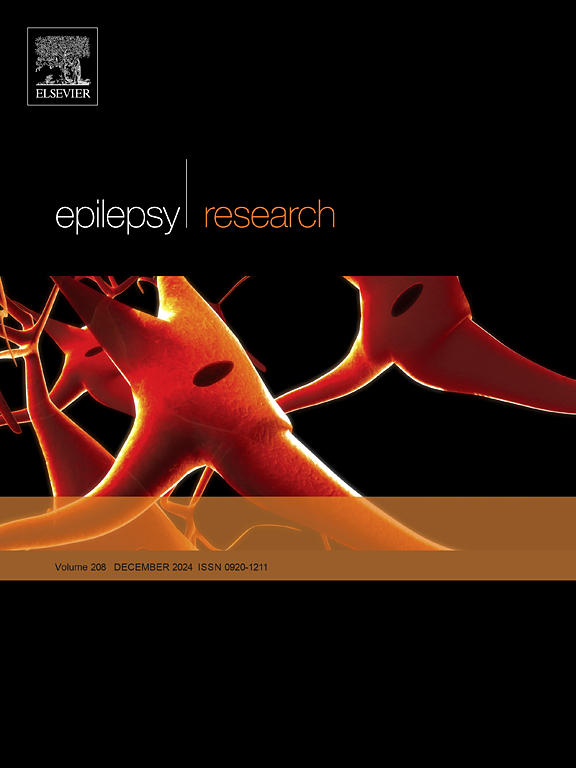斯里兰卡经济危机对与癫痫有关的健康和保健的影响
IF 2
4区 医学
Q3 CLINICAL NEUROLOGY
引用次数: 0
摘要
2022-23年斯里兰卡的经济危机对其卫生保健系统产生了重大影响,特别是癫痫,这是一种需要持续护理的疾病,在这场动荡中面临着更大的脆弱性。目的评估经济危机对癫痫患者(PWE)、其护理人员和医疗服务提供者以及癫痫相关医疗服务提供的健康影响。方法于2022年6月至8月在斯里兰卡人口最多的省份进行了一项以医院为基础的横断面研究。样本包括405名患者及其护理人员。在全国医疗保健系统执业的所有神经科医生中同时进行了单独的横断面调查。通过召回评估经济危机前后的健康结果。使用癫痫控制量表、心理健康量表和问卷来测量健康结果。对医疗保健服务的影响通过1)全国范围内抗癫痫药物(ASM)的可用性调查和2)神经科医生对危机期间医疗保健服务影响的看法来评估。结果健康结果发生了显著变化,如平均癫痫发作次数增加(p <; 0.001)、急诊入院次数增加(p <; 0.01)和突破性癫痫发作次数增加(p <; 0.001)。所有三类(pwe、护理人员和护理提供者)都报告了心理困扰。由于asm和其他一线药物短缺,医疗保健服务受到影响。医疗保健提供者报告了管理方面的挑战,包括药物短缺和患者负担增加。斯里兰卡经济危机的不利影响延伸到保健和与癫痫有关的保健服务。这项研究强调了立即合作应对这些挑战的必要性。经费:作者自筹。本文章由计算机程序翻译,如有差异,请以英文原文为准。
Impact of the economic crisis in Sri Lanka on health and healthcare related to epilepsy
Background
The economic crisis in Sri Lanka in 2022–23, has had a significant impact on its healthcare system, particularly with epilepsy, a condition demanding continuous care, facing heightened vulnerability amidst this turmoil.
Objectives
To assess the health impact of the economic crisis on people with epilepsy (PWE), their caregivers and healthcare providers and on the delivery of epilepsy-related healthcare services
Method
A hospital-based cross-sectional study was conducted from June to August 2022 in the most populated province in Sri Lanka. The sample included 405 patients and their caregivers. A separate cross-sectional survey among all neurologists practicing in the national healthcare system was concurrently performed. Health outcomes were assessed by recall for before and after the economic crisis. Epilepsy control scales, mental well-being scales and questionnaires were used to measure health outcomes. Impact on healthcare services was evaluated through 1). a country-wide survey on availability of anti-seizure medication (ASM) and 2). neurologists’ views on effects on healthcare services during the crisis.
Results
Significant shifts in health outcomes such as increase in frequency of average number of seizures experienced (p < 0.001), number of emergency admissions(p < 0.01) and greater number of breakthrough seizures(p < 0.001) was reported. Psychological distress was reported by all three categories (PWEs, caregivers and care providers). Healthcare services were affected due to shortage of ASMs and other first-line medications. Healthcare providers reported management challenges, including medication shortages and increased patient burdens.
Significance
The adverse impacts of the economic crisis in Sri Lanka extend to both health and epilepsy-related healthcare services. This study underscores the imperative for immediate collaborative efforts to address these challenges.
Funding
Self-funded by the authors.
求助全文
通过发布文献求助,成功后即可免费获取论文全文。
去求助
来源期刊

Epilepsy Research
医学-临床神经学
CiteScore
0.10
自引率
4.50%
发文量
143
审稿时长
62 days
期刊介绍:
Epilepsy Research provides for publication of high quality articles in both basic and clinical epilepsy research, with a special emphasis on translational research that ultimately relates to epilepsy as a human condition. The journal is intended to provide a forum for reporting the best and most rigorous epilepsy research from all disciplines ranging from biophysics and molecular biology to epidemiological and psychosocial research. As such the journal will publish original papers relevant to epilepsy from any scientific discipline and also studies of a multidisciplinary nature. Clinical and experimental research papers adopting fresh conceptual approaches to the study of epilepsy and its treatment are encouraged. The overriding criteria for publication are novelty, significant clinical or experimental relevance, and interest to a multidisciplinary audience in the broad arena of epilepsy. Review articles focused on any topic of epilepsy research will also be considered, but only if they present an exceptionally clear synthesis of current knowledge and future directions of a research area, based on a critical assessment of the available data or on hypotheses that are likely to stimulate more critical thinking and further advances in an area of epilepsy research.
 求助内容:
求助内容: 应助结果提醒方式:
应助结果提醒方式:


